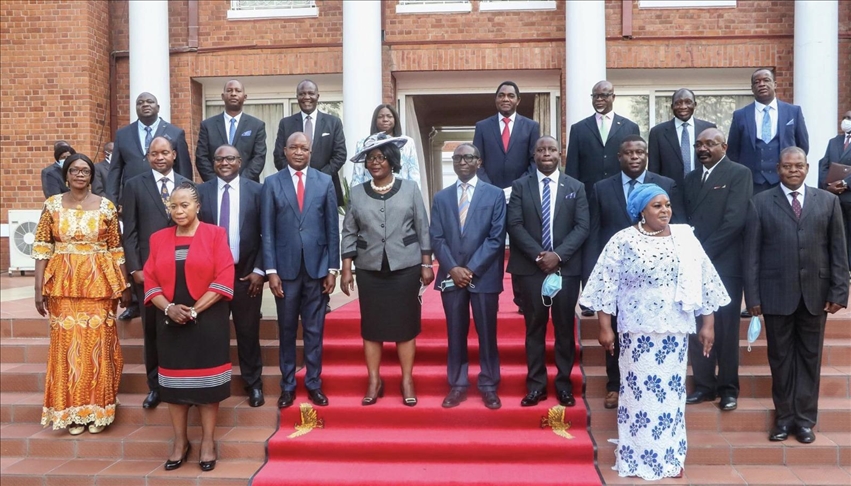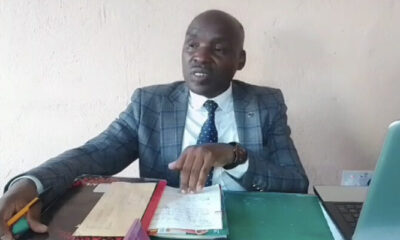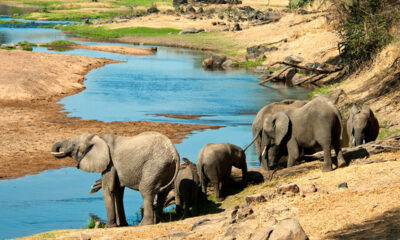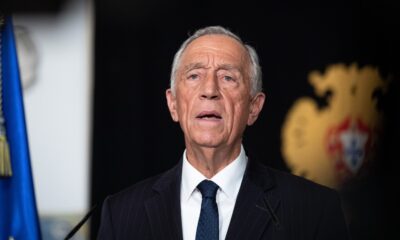Strictly Personal
Tribal Balancing in Government; a blessing or a curse? By Prince Bill M. Kaping’a
Published
1 year agoon

When President Michael Sata came under a barrage of stern criticism from some of us regarding the appointment of his kith and kin to key government positions; he retorted thus during one of his swearing-in ceremonies, “I don’t balance tribes, I balance brains!”
What do we make of this?
We don’t have to be geniuses or indeed consult the Sangomas to help us fathom whether the man people loved to refer to as King Cobra was bluffing or not. This was nothing but an absolute attempt to camouflage the ugly head of tribalism and nepotism rampant in his government, and he got away with it. Those of you with the memory of an elephant would recall that in 2012 or thereabout, I was almost locked up for high treason for churning out an article, “Sata’s Family Forest Explained” detailing the stinking whiff of nepotism and tribalism in the PF regime. Edgar Lungu was Minister of Home Affairs at the time. Oh boy, oh boy, oh boy, you should have seen it on ZNBC TV main news. He was banging and slamming his shiny mahogany desk and seething with uncontrollable rage as he urged the investigative wings to bring the culprits to book!
Anyway, once the millionaire businessman cum cattle rancher turned politician Hakainde Hichilema swept to power, he went out of his way to assemble a cabinet that is representative of the national character by nature – unlike in the past, all the regions of our great nation are represented in the current establishment.
But lo and behold, if we analyze the performance of some of the ministers, it leaves one wondering whether tribal balancing is indeed a blessing or a curse. It’s as clear as daylight that some of the ministers aren’t delivering at all. We feel pity for the president that he has to maintain dead wood in cabinet lest he’s accused of purging certain tribes from the government.
Let’s take Minister of Information and Chief Government Spokesperson madam Chushi Kasanda for instance; does she still exist? The madam hasn’t been keen to grab the bull by its horns feature on live phone-in programmes to explicate government policies! She’s rather comfortable dispatching written press statements from the comfort of her office. When the nation is grappling with numerous challenges such as load shedding, and an increase in the price of fuel and essential commodities, we expect Kasanda to fire on all cylinders trotting to every radio and TV station debunking the lies and innuendos that the enemies of progress are peddling against the New Dawn Administration.
We come to achimwene bambo Mtolo Phiri the Minister of Agriculture; does he really understand what is expected of him each time he reports for work? The distribution of farming inputs for the current farming season has been chaotic and shambolic to say the least! We expected Phiri to jump into his work suit and gumboots and embark on traversing the countryside to ensure that inputs are getting to the farmers in good time. What has been the situation on the ground? Farming inputs have been getting to our people halfway into the farming season! Who does that?
The energy sector is even worse! It had to take the entire President to excuse himself from his busy schedule to intervene in the energy crisis. What was Peter Kapala doing all that time? Why was he found it a challenge to dash to Kariba Dam or Maamba Collieries on a fact-finding mission to appreciate the magnitude of the problem and propose alternative solutions?
The president has a passion for this country, there’s no question about it. The man is in a hurry to address the stinking mess left behind by the previous regime. Unfortunately, though, most of his ministers don’t seem to move in synergy with him. They are either lost at sea or busy enjoying the trappings of power to make up for the lost time in the wilderness.
We would like to appeal to the president to immediately undertake, not only the performance appraisal of his ministers and aides at the State House but also seek to know which of his officials are engaging in corrupt activities. If it is so established that Minister XYZ has failed to perform to expectations or they’ve indeed become instant millionaires boasting of fleets of cars, mansions, and colossal sums of cash in offshore accounts, the issue of tribal balancing mustn’t even stand in the way! We expect heads to roll.
For instance, there’s been a lot of petty talk bordering on the demotion of the Presidential press aide Anthony Bwalya with some alleging that he’s lost his job based on tribe. However, Economic Front leader Wynter Kabimba has shared intelligent sentiments about the same. Speaking in an interview with the press, the former PF Secretary General says Bwalya must have crossed the red line for him to lose his much-coveted job at plot 1 and not some rubbish called ethnic grounds! It’s unfortunate that some opposition party leaders and their blind followers have gone wild spreading lies that can further polarize the nation. UPND media and the entire government machinery, please wake up!
You may like
-


Luapula businessman, Munsanje, reflects on media freedoms and freedom of expression
-


Institute calls for responsible social media usage among youths
-


Digital Rights: Policy enthusiast, Jere, advocates self-regulation as alternative to govt regulations
-


Sign language interpreter, Kunda, seeks inclusivity in media rights agenda
-


Sign language interpreter, Kunda, seeks inclusivity in media rights agenda (video)
-


Educationist challenges media freedom norms, cautions against misuse of freedom of expression
Strictly Personal
Air Peace, capitalism and national interest, By Dakuku Peterside
Published
1 week agoon
April 16, 2024
Nigerian corporate influence and that of the West continue to collide. The rationale is straightforward: whereas corporate activity in Europe and America is part of their larger local and foreign policy engagement, privately owned enterprises in Nigeria or commercial interests are not part of Nigeria’s foreign policy ecosystem, neither is there a strong culture of government support for privately owned enterprises’ expansion locally and internationally.
The relationship between Nigerian businesses and foreign policy is important to the national interest. When backing domestic Nigerian companies to compete on a worldwide scale, the government should see it as a lever to drive foreign policy, and national strategic interest, promote trade, enhance national security considerations, and minimize distortion in the domestic market as the foreign airlines were doing, boost GDP, create employment opportunities, and optimize corporate returns for the firms.
Admitted nations do not always interfere directly in their companies’ business and commercial dealings, and there are always exceptions. I can cite two areas of exception: military sales by companies because of their strategic implications and are, therefore, part of foreign and diplomatic policy and processes. The second is where the products or routes of a company have implications for foreign policy. Air Peace falls into the second category in the Lagos – London route.
Two events demonstrate an emerging trend that, if not checked, will disincentivize Nigerian firms from competing in the global marketplace. There are other notable examples, but I am using these two examples because they are very recent and ongoing, and they are typological representations of the need for Nigerian government backing and support for local companies that are playing in a very competitive international market dominated by big foreign companies whose governments are using all forms of foreign policies and diplomacy to support and sustain.
The first is Air Peace. It is the only Nigerian-owned aviation company playing globally and checkmating the dominance of foreign airlines. The most recent advance is the commencement of flights on the Lagos – London route. In Nigeria, foreign airlines are well-established and accustomed to a lack of rivalry, yet a free-market economy depends on the existence of competition. Nigeria has significantly larger airline profits per passenger than other comparable African nations. Insufficient competition has resulted in high ticket costs and poor service quality. It is precisely this jinx that Air Peace is attempting to break.
On March 30, 2024, Air Peace reciprocated the lopsided Bilateral Air Service Agreement, BASA, between Nigeria and the United Kingdom when the local airline began direct flight operations from Lagos to Gatwick Airport in London. This elicited several reactions from foreign airlines backed by their various sovereigns because of their strategic interest. A critical response is the commencement of a price war. Before the Air Peace entry, the price of international flight tickets on the Lagos-London route had soared to as much as N3.5 million for the economy ticket. However, after Air Peace introduced a return economy class ticket priced at N1.2 million, foreign carriers like British Airways, Virgin Atlantic, and Qatar Airways reduced their fares significantly to remain competitive.
In a price war, there is little the government can do. In an open-market competitive situation such as this, our government must not act in a manner that suggests it is antagonistic to foreign players and competitors. There must be an appearance of a level playing field. However, government owes Air Peace protection against foreign competitors backed by their home governments. This is in the overall interest of the Nigerian consumer of goods and services. Competition history in the airspace works where the Consumer Protection Authority in the host country is active. This is almost absent in Nigeria and it is a reason why foreign airlines have been arbitrary in pricing their tickets. Nigerian consumers are often at the mercy of these foreign firms who lack any vista of patriotism and are more inclined to protect the national interest of their governments and countries.
It would not be too much to expect Nigerian companies playing globally to benefit from the protection of the Nigerian government to limit influence peddling by foreign-owned companies. The success of Air Peace should enable a more competitive and sustainable market, allowing domestic players to grow their network and propel Nigeria to the forefront of international aviation.
The second is Proforce, a Nigerian-owned military hardware manufacturing firm active in Rwanda, Chad, Mali, Ghana, Niger, Burkina Faso, and South Sudan. Despite the growing capacity of Proforce in military hardware manufacturing, Nigeria entered two lopsided arrangements with two UAE firms to supply military equipment worth billions of dollars , respectively. Both deals are backed by the UAE government but executed by UAE firms.
These deals on a more extensive web are not unconnected with UAE’s national strategic interest. In pursuit of its strategic national interest, India is pushing Indian firms to supply military equipment to Nigeria. The Nigerian defence equipment market has seen weaker indigenous competitors driven out due to the combination of local manufacturers’ lack of competitive capacity and government patronage of Asian, European, and US firms in the defence equipment manufacturing sector. This is a misnomer and needs to be corrected.
Not only should our government be the primary customer of this firm if its products meet international standards, but it should also support and protect it from the harsh competitive realities of a challenging but strategic market directly linked to our national military procurement ecosystem. The ability to produce military hardware locally is significant to our defence strategy.
This firm and similar companies playing in this strategic defence area must be considered strategic and have a considerable place in Nigeria’s foreign policy calculations. Protecting Nigeria’s interests is the primary reason for our engagement in global diplomacy. The government must deliberately balance national interest with capacity and competence in military hardware purchases. It will not be too much to ask these foreign firms to partner with local companies so we can embed the technology transfer advantages.
Our government must create an environment that enables our local companies to compete globally and ply their trades in various countries. It should be part of the government’s overall economic, strategic growth agenda to identify areas or sectors in which Nigerian companies have a competitive advantage, especially in the sub-region and across Africa and support the companies in these sectors to advance and grow to dominate in the African region with a view to competing globally. Government support in the form of incentives such as competitive grants ,tax credit for consumers ,low-interest capital, patronage, G2G business, operational support, and diplomatic lobbying, amongst others, will alter the competitive landscape. Governments and key government agencies in the west retain the services of lobbying firms in pursuit of its strategic interest.
Nigerian firms’ competitiveness on a global scale can only be enhanced by the support of the Nigerian government. Foreign policy interests should be a key driver of Nigerian trade agreements. How does the Nigerian government support private companies to grow and compete globally? Is it intentionally mapping out growth areas and creating opportunities for Nigerian firms to maximize their potential? Is the government at the domestic level removing bottlenecks and impediments to private company growth, allowing a level playing field for these companies to compete with international companies?
Why is the government patronising foreign firms against local firms if their products are of similar value? Why are Nigerian consumers left to the hands of international companies in some sectors without the government actively supporting the growth of local firms to compete in those sectors? These questions merit honest answers. Nigerian national interest must be the driving factor for our foreign policies, which must cover the private sector, just as is the case with most developed countries. The new global capitalism is not a product of accident or chance; the government has choreographed and shaped it by using foreign policies to support and protect local firms competing globally. Nigeria must learn to do the same to build a strong economy with more jobs.
Strictly Personal
This is chaos, not governance, and we must stop it, By Tee Ngugi
Published
2 weeks agoon
April 10, 2024
The following are stories that have dominated mainstream media in recent times. Fake fertiliser and attempts by powerful politicians to kill the story. A nation of bribes, government ministries and corporations where the vice is so routine that it has the semblance of policy. Irregular spending of billions in Nairobi County.
Billions are spent in all countries on domestic and foreign travel. Grabbing of land belonging to state corporations, was a scam reminiscent of the Kanu era when even public toilets would be grabbed. Crisis in the health and education sectors.
Tribalism in hiring for state jobs. Return of construction in riparian lands and natural waterways. Relocation of major businesses because of high cost of power and heavy taxation. A tax regime that is so punitive, it squeezes life out of small businesses. Etc, ad nauseam.
To be fair, these stories of thievery, mismanagement, negligence, incompetence and greed have been present in all administrations since independence.
However, instead of the cynically-named “mama mboga” government reversing this gradual slide towards state failure, it is fuelling it.
Alternately, it’s campaigning for 2027 or gallivanting all over the world, evoking the legend of Emperor Nero playing the violin as Rome burned.
A government is run based on strict adherence to policies and laws. It appoints the most competent personnel, irrespective of tribe, to run efficient departments which have clear-cut goals.
It aligns education to its national vision. Its strategies to achieve food security should be driven by the best brains and guided by innovative policies. It enacts policies that attract investment and incentivize building of businesses. It treats any kind of thievery or negligence as sabotage.
Government is not a political party. Government officials should have nothing to do with political party matters. They should be so engaged in their government duties that they literally would not have time for party issues. Government jobs should not be used to reward girlfriends and cronies.
Government is exhausting work undertaken because of a passion to transform lives, not for the trappings of power. Government is not endless campaigning to win the next election. To his credit, Mwai Kibaki left party matters alone until he had to run for re-election.
We have corrupted the meaning of government. We have parliamentarians beholden to their tribes, not to ideas.
We have incompetent and corrupt judges. We have a civil service where you bribe to be served. Police take bribes to allow death traps on our roads. We have urban planners who plan nothing except how to line their pockets. We have regulatory agencies that regulate nothing, including the intake of their fat stomachs.
We have advisers who advise on which tenders should go to whom. There is no central organising ethos at the heart of government. There is no sense of national purpose. We have flurries of national activities, policies, legislation, appointments which don’t lead to meaningful growth. We just run on the same spot.
Tee Ngugi is a Nairobi-based political commentator
EDITOR’S PICK


Tanzania’s auto-tech startup Spana is simplifying car maintenance— CEO
Tanzania’s auto-tech startup, Spana, has developed a mobile application for a bouquet of automobile services, enabling individual car owners and...


Nollywood thrown into mourning as another veteran actor Zulu Adigwe passes on
The Nigerian movie industry, popularly known as Nollywood, has once again been thrown into mourning with the death of veteran...


Zambian FA boss, Gen.Sec arrested over alleged laundering of K341,902
President of the Football Association of Zambia (FAZ), Andrew Kamanga, has been arrested along with the Secretary-General and two other...


Luapula businessman, Munsanje, reflects on media freedoms and freedom of expression
As stakeholder engagement intensifies regarding the ongoing project to amplify voices on media freedom, freedom of expression, and digital rights,...


World Bank stops tourism fund to Tanzania’s Ruaha park. Here’s why
A spokesperson for the World Bank said on Wednesday that the lender had stopped all new payments from a $150...


‘It would be risky to release Binance executive from custody risky’, Nigerian govt says
Nigeria’s anti-corruption agency, the Economic and Financial Crimes Commission (EFCC), believes admitting the detained executive of cryptocurrency firm, Binance Holdings...


President de Sousa insists Portugal must ‘pay costs’ of slavery, colonial crimes
Following recent conversations around reparations to countries with colonial heritage, Portuguese President, Marcelo Rebelo de Sousa, has added his voice...


Nigeria’s antigraft agency EFCC may try 300 forex racketeers
The Economic and Financial Crimes Commission (EFCC), Nigeria’s anti-corruption body, could go after 300 forex criminals who trade on a...


Institute calls for responsible social media usage among youths
Smart Zambia Institute has reiterated the importance of youths to use social media responsibly. Senior Business Applications Officer at the...


Digital Rights: Policy enthusiast, Jere, advocates self-regulation as alternative to govt regulations
Copperbelt businessman and mining policy advocate, George Jere, has highlighted the importance of self-regulation in the expanding digital media landscape,...
Trending
-

 Metro2 days ago
Metro2 days agoNigerian govt shuts Chinese supermarket over ‘no-Nigerian shopper’ allegation
-

 Culture1 day ago
Culture1 day agoEgypt reclaims 3,400-year-old stolen statue of King Ramses II
-

 Musings From Abroad17 hours ago
Musings From Abroad17 hours agoPresident de Sousa insists Portugal must ‘pay costs’ of slavery, colonial crimes
-

 VenturesNow2 days ago
VenturesNow2 days agoNigeria wants $2.25 billion World Bank loan


